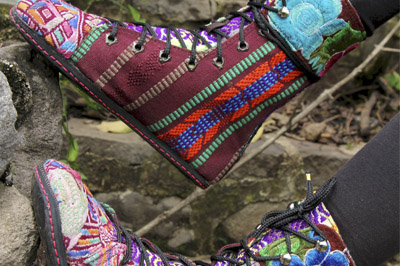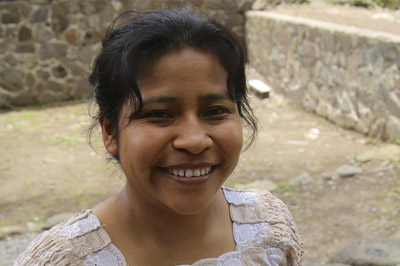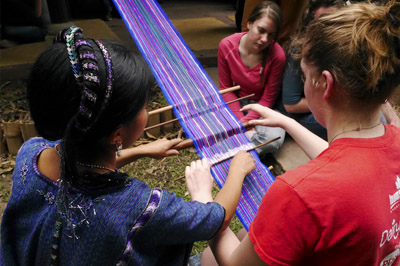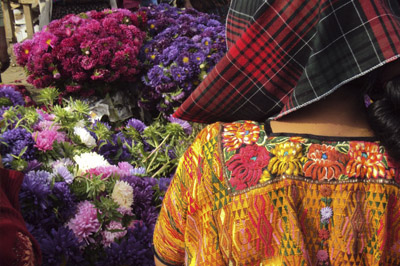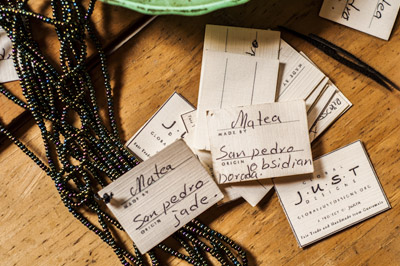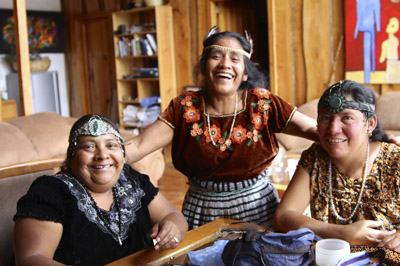Fair Trade
FAIR TRADE
A FAIR PRICE
EDUCATION AND SKILLS
LABOR RIGHTS
LASTING RELATIONSHIPS
REINVESTING
ENVIRONMENTAL STANDARDS
DIRECT TRADE
CONSUMER EDUCATION
Fair Trade
 Fair Trade is a system of exchange which honors producers, communities, consumers and the environment. Fair Trade is about empowering marginalized producers in the poorest parts of the world to pull them out of poverty. It’s not only about paying a fair price for a product, it’s about creating a just marketplace where farmers and artisans have an equal foot in both the process and the profit.
Fair Trade is a system of exchange which honors producers, communities, consumers and the environment. Fair Trade is about empowering marginalized producers in the poorest parts of the world to pull them out of poverty. It’s not only about paying a fair price for a product, it’s about creating a just marketplace where farmers and artisans have an equal foot in both the process and the profit.
A Fair Price
Artisans receive a guaranteed minimum price for their product, which allows for a living wage in their community. JUSTA pays fair compensation for our artisans´ work. A fair wage was determined through discussions with the artisans, as well as taking into account the national minimum wage, standard of living, and average incomes in the community.
Education and Skills
 Investing in skills-development to teach producers self-sufficiency and sustainability. JUSTA emphasizes continuing education. We teach the necessary skills so that our artisans can be involved in several aspects of production; receiving, dividing, filling, and tracking orders. The Beading Collective women meet once a week to present the produced items and to make plans for following production cycle. During these meetings women learn about accounting, managing, and quality control.
Investing in skills-development to teach producers self-sufficiency and sustainability. JUSTA emphasizes continuing education. We teach the necessary skills so that our artisans can be involved in several aspects of production; receiving, dividing, filling, and tracking orders. The Beading Collective women meet once a week to present the produced items and to make plans for following production cycle. During these meetings women learn about accounting, managing, and quality control.
Labor Rights
 Workers are entitled to safe working conditions, freedom of association and reasonable working hours. Child labor is strictly prohibited. JUSTA allows artisans to work from their homes which ensures time for their families and other daily needs. Since many of the women in our collective are also single mothers, being able to balance home and work is an important priority. In addition, working from home allows our artisans to enjoy a comfortable and safe work environment.
Workers are entitled to safe working conditions, freedom of association and reasonable working hours. Child labor is strictly prohibited. JUSTA allows artisans to work from their homes which ensures time for their families and other daily needs. Since many of the women in our collective are also single mothers, being able to balance home and work is an important priority. In addition, working from home allows our artisans to enjoy a comfortable and safe work environment.
Lasting Relationships
 Businesses must engage in creating a long-lasting buying relationship with producers. JUSTA has a commitment to our artisans. Several have been working with the project since the beginning. We place a strong value on creating long-term and stable relationships with our artisans. A member of JUSTA is present in Guatemala to continue developing and improving our working partnerships.
Businesses must engage in creating a long-lasting buying relationship with producers. JUSTA has a commitment to our artisans. Several have been working with the project since the beginning. We place a strong value on creating long-term and stable relationships with our artisans. A member of JUSTA is present in Guatemala to continue developing and improving our working partnerships.
Reinvesting in the Local Economy
Producers and buyers engage in conscientious business practices. JUSTA buys local. Our textiles and beading materials are purchased from local markets and artisan shops to ensure that our money stays in the community and supports neighboring small businesses.
Environmental Standards
Harmful chemicals and practices that result in environmental degradation are prohibited. JUSTA recycles and reuses. Most of the textiles used in our skirts and bags come from recycled materials and huipiles (indigenous Mayan blouses). Our carbon footprint is not only lowered by the use of recycled materials, but also in our shipping process. Instead of shipping merchandise overseas in individual cartons or boxes, JUSTA chooses to use fiber bags to cut down on shipping waste. We often reuse boxes and packaging.
Direct Trade

source: Jessica Long
Products are purchased directly from the producer, eliminating unnecessary middlemen who raise the price for consumers and diminish producers’ profits. JUSTA buys directly from our artisans. By keeping a tight chain of production, JUSTA is able to pay all participants in this chain a higher percentage.
Consumer Education
During retail events we make sure to educate our buyers on Fair Trade and the positive impact it has on the lives of our artisans.


